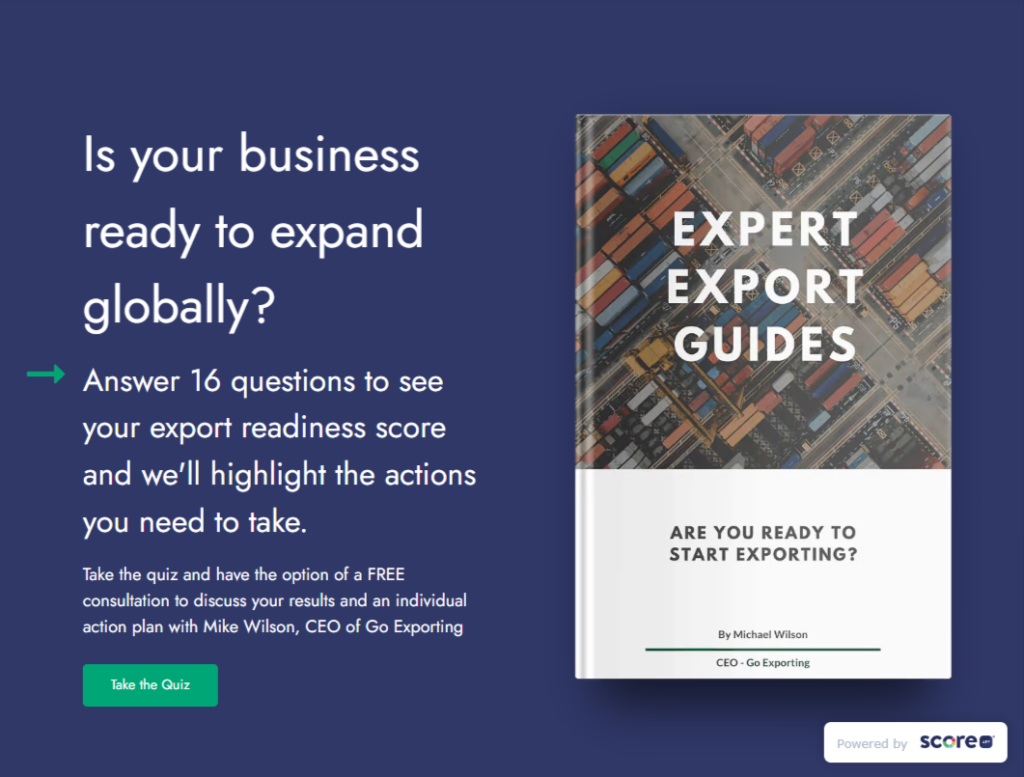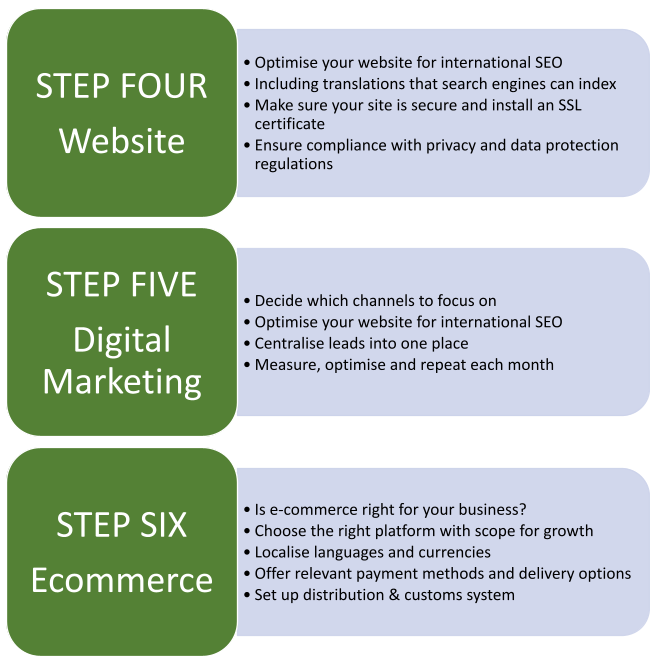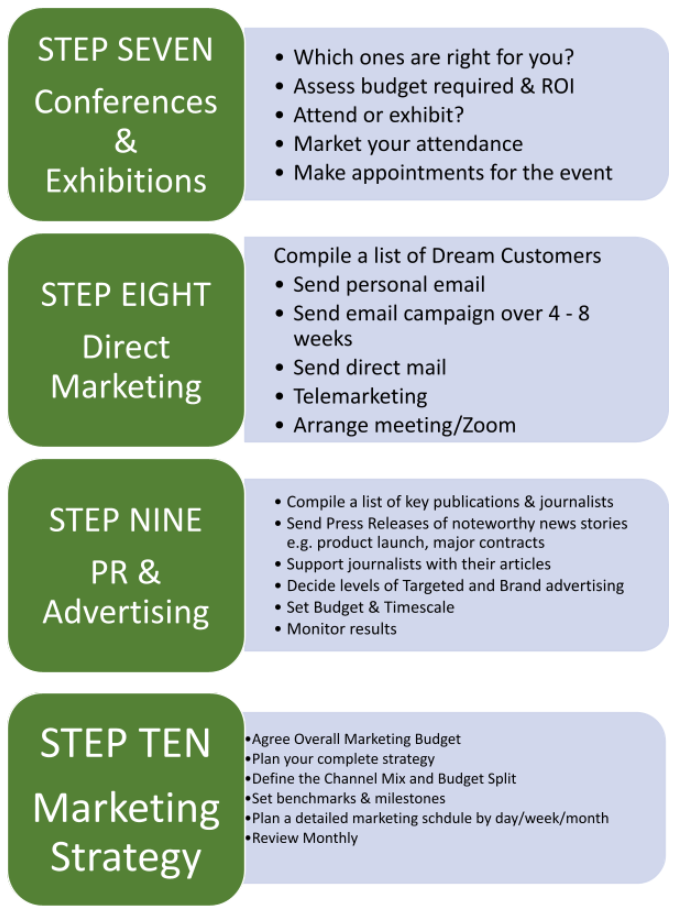If you’ve ever wondered what it takes to go from a local sensation to a global powerhouse, then I’ve got a story that will captivate your imagination and transform your perspective. Brace yourself for an extraordinary tale of triumph against all odds.
Once upon a time, in the glamorous world of fashion, there was a renowned brand called ABC Fashion. Known for their chic designs and trendsetting styles, they set their sights on conquering international markets. But little did they know that their journey would be filled with unexpected twists and valuable lessons.
ABC Fashion believed that partnering with a distributor would be the key to instant market access. However, their path to success turned out to be far more complex than they had anticipated. The vibrant patterns and bold colours that made ABC Fashion famous fell flat among the more subdued and classic preferences of foreign consumers.
But ABC Fashion was not one to back down. They quickly realized that conquering new markets required more than just relying on a distributor. They immersed themselves in the local culture, studying fashion trends, consumer behaviour, and the preferences of the target audience.
With their newfound insights, ABC Fashion made a daring decision. They adapted their designs to cater to the local market, striking a delicate balance between their brand identity and the cultural nuances of the foreign market. And to their surprise, the tweaked designs began to resonate with fashion enthusiasts.
But their challenges didn’t end there. ABC Fashion realised that relying solely on a distributor was not enough to establish a strong market presence. They took matters into their own hands, setting up a dedicated team to oversee the distribution process and working closely with retailers to create a unique shopping experience that showcased their brand.
Through their perseverance and willingness to adapt, ABC Fashion emerged as a global success story. They shattered the myth of instant market access and proved that strategic planning, cultural understanding, and taking ownership of the distribution process were the true keys to success.
I wanted to share this incredible journey with you because it holds valuable insights that can transform your approach to market expansion. In our fast-paced world, it’s essential to embrace a comprehensive strategy that goes beyond traditional notions of success.
Now, take a moment to reflect on ABC Fashion’s story. It’s a testament to the power of perseverance, adaptation, and thinking outside the box. In the following sections of this article, we’ll delve deeper into the counterintuitive insights and practical strategies that emerged from their journey.
There’s an important lesson that emerges—a lesson that challenges conventional wisdom and provides valuable guidance for aspiring entrepreneurs. It’s a lesson that reminds us that success in the global market goes beyond relying on a distributor alone. So, let’s dive deeper and uncover the counterintuitive insight that can transform the way we approach market expansion.
A distributor does not guarantee instant market access
While partnering with a distributor can provide certain advantages, such as local expertise and distribution networks, it’s essential to remember that true market success requires more than a simple alliance. The story of ABC Fashion taught us that understanding the local culture, adapting our strategies to match consumer preferences, and taking ownership of the distribution process are vital steps on the path to success.
By embracing a comprehensive approach, we gain the power to navigate the intricate landscape of global markets with confidence. It’s about forging genuine connections, engaging in market research, and creating experiences that resonate with our target audience. This insight shatters the myth of overnight success and invites us to embrace a strategic, long-term mindset that paves the way for sustainable growth.
So, harness the lessons learned from ABC Fashion’s journey and apply them to your own ventures. Use them to navigate the intricacies of international markets and build a solid foundation for success.
Now that we’ve explored the importance of strategic planning and understanding the dynamics of international markets, it’s time to equip ourselves with the right tools to navigate this intricate landscape. That’s where the PartnerTrack Service from Go Exporting comes in—an invaluable resource designed to help businesses like yours find the perfect route to market. So, let’s take a moment to discover how this service can revolutionise our approach to global expansion.
Introducing the PartnerTrack Service – finding the right route to market. With this service, we work closely with you to define your ideal partner or distributor, identifying the specific attributes they need to possess to effectively navigate your market sector. Our expert team conducts a thorough search, meticulously vetting potential candidates to present you with the best options, allowing you to make the final decision confidently.
Program Highlights:
1. Understand exactly the ideal profile for your partner or distributor.
2. Search the target market for companies that match your ideal profile.
3. Contact potential partners on your behalf to assess their interest and suitability.
4. Evaluate their fit to your profile and the required attributes for success.
5. Arrange meetings, facilitating your ability to make the final choice of your ideal partner or distributor.
By leveraging the PartnerTrack Service, you gain a competitive edge in the market, ensuring that you find a partner who aligns with your vision and has the necessary expertise to support your growth. With our comprehensive approach and meticulous evaluation process, we eliminate the guesswork, saving you time, effort, and potential pitfalls along the way.
Take the next step towards achieving global market success. Click here to learn more about the PartnerTrack Service and discover how it can transform your journey to finding the ideal partner or distributor for your business.
The UK government has published its updated plan for checks on goods crossing the UK Border.
This new Target Operating Model will now introduce import checks at the UK Border on ALL goods, as well as begin the introduction of a Single Trade Window together with the planned end of CHIEF in November 2023.
The new Border Operating Model will be digitally driven through the proposed ‘Single Trade Window’- a one-stop electronic portal, which aims to ease and speed up the customs process, and will give greater granularity for the monitoring and detection and enforcement of non-compliant activities.
So what is going to happen?
- All imports will be checked at the Border by Border Force/HMRC for compliance
- New ‘Sanitary & Phytosanitary (SPS)’ controls will be enforced especially on food products
- Additional Safety & Security controls on imports
- Controls are expected to start in October 2023
- New risk-based border processes will come into effect
- Changeover from CHIEF to CDS for exports will take place
What does this mean for you?
There is little detail is available on what the new processes are going to be, but it will cause some supply chain disruption- especially in agrifoods and food products
Based on experience you can expect delays in receiving or sending goods due to:
- Border congestion
- Pre-notification requirements of certain goods
- Full physical inspections
- Incorrect documentation
- HMRC computer system outages
- Lock in any prices now before the cost effects of the import controls impact bite
What should you do?
- Make sure you have enough stock to ride out a month of disruption
- Plan any shipments for either before October or after October
- Ensure shipping documents are complete with the right commodity code, certificates, and licences
- Keep your import and export records up to date
Expected timeline
31 October 2023
– Export health certificates and phytosanitary certificates are to be introduced for medium risk animal products, plant, and plant products imported to GB from the EU.
End of 2023
Permanent waivers introduced from the requirement to submit Safety and Security declarations on certain categories of low-risk movements – fish which have been caught in UK territorial seas and landed outside of the UK, outbound transit and certain outbound freeport goods.
31 January 2024
-Documentary checks and physical and identity checks at the border are introduced for medium-risk animal products, plant and plant products imported to GB from the EU.
The global model of controls is introduced for rest of the world imports, Health certificates will no longer be required for low-risk goods and pre-notification will no longer be required for low risk plant and plant products.
31 October 2024
– Safety and Security declarations are required for EU imports. Alongside this, use of the UK Single Trade Window will remove duplication across pre-arrival datasets where possible.
Confused? Then reach out for help
Go Exporting provides customs and compliance advice to clients in the UK and around the world. We answer your urgent questions or provide a complete analysis culminating in a step-by-step procedure for you to follow which ensures your products move from country to country with the minimum of fuss and duties.
Learn more about how we can support your business here.
Spring is in the air in the Northern Hemisphere and many companies’ thoughts are turning towards expanding into new international markets. One of the key decisions you need to consider is your route-to-market strategy. How are you going to reach the market? How will you carve out a market share?
Often the easiest way to enter a market appears to be through a local distributor or agent. This is a low-risk strategy on the face of it, certainly from a fixed-cost perspective. But how do you find the right distributor or agent in your target market?
This is a question we are often asked by clients, so have produced a new free guide, available to download from our website.
Download now: How to find a distributor
There are a number of ways to start your search. Choosing the right distributor or agent is critical. Get this wrong and it can severely disrupt your progress in the market.
The first step is to define your ideal partner profile. What type of partner or distributor are you looking for? What is the ideal size of company? Which market sectors do they operate in? Which complementary products will they be selling? What resources do they need to have to be able to best promote your products or service? Any specific experience or technical knowledge they require? And so on. List all the factors that are important to you in your new partner or distributor.
Only when you know what you are looking for, will you know when you have found the right one!
Once you have defined your ideal distributor, the next step is to research the businesses which fit your profile. There are a number of ways to do this which we explore in the guide. It is important to take your time. Draw up a list of possible companies, then review them more deeply for suitability to refine your list to the most likely candidates.
You are now in a position to start contacting your dream list of potential distributors, to evaluate their interest in working with you too. Be persistent. They may not respond to your first contact but keep going until they do. Whether that response is positive or negative, it helps to narrow down your search.
Approach them with details of your product or service and shorten the list to those who show the most interest, combined with required market presence and potential.
Do not rush in, take your time to assess potential candidates, talk to more than one. Visit them, get a feel for the company, who their customers are. Do they really specialise in your market sector?
It is very important to choose carefully. This distributor will be the face of your company in the market. You may well be judged by who you are associated with. Make sure they have a good solid reputation and a long-standing interest in your market.
Also look at their existing portfolio of products or services. Who do they already represent? Are they complimentary or competing? Are they operating in the right market sector? Do they appear to have a lot of products already for the resources at their disposal? Is this a concern?
A well-connected representative can be worth their weight in gold in helping you make entry into the market. With the right connections they can FastTrack you in front of the right customers but beware those who promise amazing things when in reality they are either already fully committed, not in the right market space or have conflicts of interest. It is not unheard of for a supplier to be tied up for years with a distributor who either cannot, or deliberately does not, market it aggressively. Be wary of those who profess to be well-connected or related to the Prince or Government Minister.
Once you have narrowed it down to one or two potential companies, suggest a loose working relationship to start with until you are both sure you are a good fit. See if they produce the goods, open the right doors and hopefully secure some orders before rushing in to an exclusive or long-term contract.
Set clear expectations from the beginning and agree key performance indicators. Assess their actual performance over at least 3-6 months before formalising the relationship. Take the time to build mutual trust, you are looking for a long-term partner, not a quick buck.
When you do enter into a formal or exclusive contract, make sure the basics are right so there are no conflicts later on. In the guide we explore the essential elements of a distributor contract.
Download now: How to find a distributor
Make sure any exclusive contract is mutually exclusive! You don’t want your distributor or agent representing a competitor also.
Remember making the right choice is critical to the success of your market entry strategy. Finding the right distributor can be a complicated and time-consuming process requiring experience and expertise to complete effectively.
For this reason we developed our PartnerTrack service where we help you define your ideal partner, carry out the search, evaluate and approach potential partners to help you select the right one(s) for your business.
PartnerTrack is a cost-effective way of starting your export journey to profits in your new target market. For further information and a no-obligation discussion, please contact us today.
Anyone trading with or from Northern Ireland since Brexit will be aware of the increased difficulties and effective border down the Irish Sea. It’s an issue which has been a constant bone of contention, especially with Northern Ireland politicians, leading to the collapse of the Stormont Assembly after the DUP withdrew.
Rishi Sunak, the UK Prime Minister and Ursula von der Leyen, President of the European Commission announced the so-called Windsor Framework on 27th February, hailed as the solution to the issues and a victory for common sense. But what does it mean for international trade? Will it actually improve the situation for UK-NI traders without closing the border between NI and the EU?
One of the key wins is the Green Lane/Red Lane idea where goods from the rest of the UK destined for Northern Ireland will follow a Green Lane, with a separate Red Lane for goods destined for or at risk of ending up in the EU. It has been publicised as if the Green Lane will have virtually no paperwork and movement of goods to NI will be like before Brexit.
As ever the devil is in the detail. There will in fact still be paperwork requirements for traders, albeit at a significantly reduced level. There will still be around 25 datapoints required. This is not being called a Customs Declaration, but some would argue in effect that is what it will be. Goods in the Green Lane will not be subject to systematic checks, though the facility for spot checks is there.
Parcels will not be subject to full customs declarations but from 2024 the parcel operators will be required to share data with the EU to manage smuggling risks.
Current bans on certain products like chilled sausages entering Northern Ireland as a result of EU law will be lifted, meaning anything available in UK supermarkets will once again be available in Northern Ireland. New labelling arrangements will come into force for some goods. UK VAT and Excise Duties will once again apply in Northern Ireland for alcoholic drinks for immediate consumption.
Northern Ireland retailers will have to qualify as trusted traders to benefit from the reduced paperwork, however. Rishi Sunak explains:
“It means food retailers like supermarkets, restaurants and wholesalers will no longer need hundreds of certificates for every lorry,” Sunak said. “If food is available on supermarket shelves in Great Britain, then it will be available on supermarket shelves in Northern Ireland.”
Personal, online shopping and business-to-business parcels sent from Britain into Northern Ireland “will have to complete no customs paperwork”, he said.
Download now: Checklist for exporting from the EU to the UK post-Brexit
Bans on seed potatoes and 11 types of native UK trees will also be lifted. Medicines approved in the UK will automatically be available in Northern Ireland. This is a major boost for pharmaceutical companies in the UK and the NHS.
Goods moving from NI to the rest of the UK will not require paperwork.
On the face of it, this is a good agreement for Northern Ireland, keeping its foot in both the UK and EU with it seems the minimum of bureaucracy. Yet could all be about to implode?
A key element of the framework is the so-called Stormont Break, designed to give the Northern Ireland Assembly a say on how EU laws are applied in Northern Ireland. It can effectively put a brake on new laws being implemented.
Read more: New Northern Ireland framework could unlock US trade deal
The DUP has indicated that it will oppose this element of the framework in a House of Commons vote on 22nd March 2023. If they do, then the future of the overall agreement could be in doubt. The bill will still pass on Wednesday as it has Labour support, but ultimately the DUP must be convinced in order to restart the power-sharing executive in Northern Ireland which has failed to sit for over a year.
Watch this space!
I was at a conference this week all about marketing and how to expand your business. There were some truly inspirational and interesting speakers, from TV Dragons, major company CEOs, through to a performance psychologist and marketing experts.
One theme that came out time and again was the importance of planning and taking the time to work on your business, not in your business. Creating the breathing space to really focus on where you want to go and what you need to do to get there. Yet at the same time remaining agile enough to react to ever-changing market conditions. Who would have predicted a global pandemic or war in Ukraine with all their human and economic consequences?
It struck me that this is exactly the support we offer our clients on their export journey. We help them to focus on taking the right decisions; not to rush in before they are export ready, before understanding customs and compliance requirements, before evaluating their target markets and the true potential they offer, before thoroughly researching the right routes to market and local channel partners.
When confronted with the day-to-day challenges of running your business, the pressure to meet growth targets, or replace declining markets, it can be difficult to focus on making informed decisions. There is a tendency to rush in.
This is where Go Exporting can help you. We take the strain by doing the important groundwork, providing accurate information to allow you to make the right decisions on your international strategy.
With over 30 years’ experience in helping businesses just like yours to profitably expand into international markets, we have developed a range of cost-effective services which support you in the right areas along that journey.
- EXPORT READINESS ASSESSMENTS
- CUSTOMS & COMPLIANCE
- MANAGING THE BREXIT TRANSITION
- IDENTIFY & PRIORITISE MARKETS
- EXPORT STRATEGY
- FINDING DISTRIBUTORS & PARTNERS
- IDENTIFYING POTENTIAL CUSTOMERS
- INTERNATIONAL DIGITAL MARKETING
These are just some examples of how we can help. Every customer is different, however, so we are flexible and work with you to achieve your objectives.
Take time out to work on your business, not in your business.
For the month of October, we are offering a limited number of FREE 30-minute consultations with our CEO Mike Wilson to discuss any aspects of your international journey you would like to raise. He will provide advice and answer your direct questions. There’s absolutely no obligation and no hard sell…. in fact, no sell at all! This is a special benefit offered to our customers and newsletter subscribers.
BOOK YOUR FREE CONSULTATION TODAY
Limited slots available!













